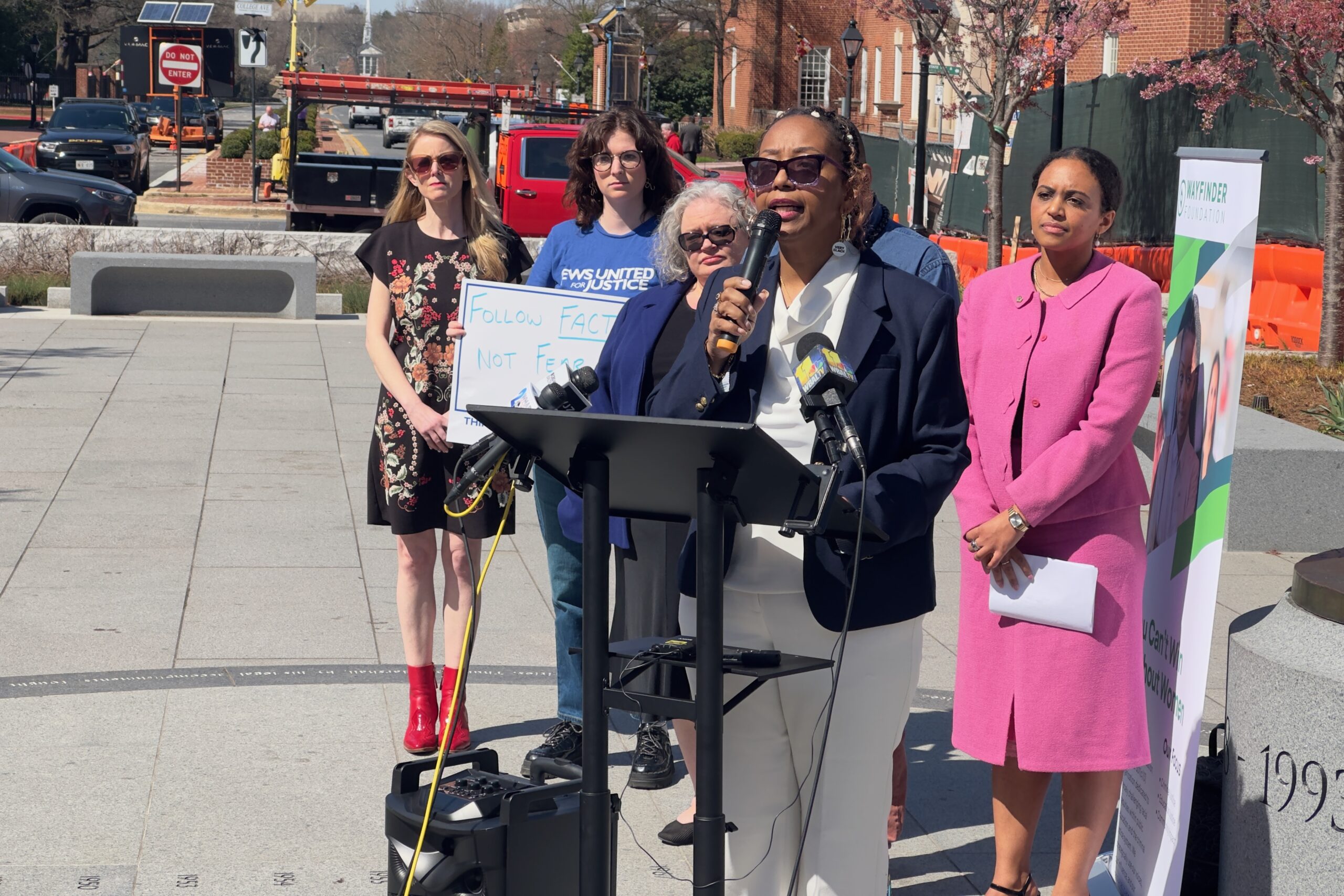
Advocates for criminal justice reform are urging Maryland lawmakers to make drastic changes to the recently passed juvenile justice reform measure.
Respective committees from each chamber must now review some of the differences in House Bill 814 and Senate Bill 744 such as when the legislation goes into effect, specific diversionary programs for children ages 10 to 12, and who would serve on a Commission on Juvenile Justice Reform and Emerging and Best Practices.
If lawmakers pass the legislation with what advocates call “regressive provisions,” then Gov. Wes Moore (D) should veto the bills when they come to his desk, the advocates said Thursday.
Zakiya Sankara-Jabar, co-founder and co-executive director of Racial Justice NOW, based in Montgomery County, called the measure “completely uncivilized” when it comes to expanding the jurisdiction of the state Department of Juvenile Services (DJS) to children ages 10 to 12.
“We’re talking about fourth graders, were talking about babies…,” she said Thursday at Lawyers Mall in Annapolis. “We can’t figure out nothing better to do with 10-year-olds than to put them in cages. No, I think not.”
Moore and Democratic leaders have said the measures propose to make tweaks to the juvenile justice system, but some advocates say it will negatively affect reform measures passed in 2022.
Lawmakers leading the reform efforts have said they aim to combine rehabilitation and accountability.
Both versions require a juvenile services intake officer to make an inquiry within 15 business days to decide whether the juvenile court has jurisdiction over a youth offender’s case and if judicial action “is in the best interests of the public or the child.” The current law allows 25 days.
In a legislature with 188 members, only eight voted against the bills: Sens. Jill P. Carter (D-Baltimore City) and Charles E. Sydnor III (D-Baltimore County) and Dels. Gabriel Acevero (D-Montgomery), Tiffany Alston (D-Prince George’s), Debra Davis (D-Charles), Ashanti Martinez (D-Prince George’s), Jamila Woods (D-Prince George’s) and Caylin Young (D-Baltimore City).
Asked Thursday for comment about the advocates’ call to veto the legislation, a Moore spokesperson referred to what the governor said during a Jan. 31 press conference with Democratic leaders.
“The legislature has a thorough process between introduction and passage. I’m aware of the fact that this is the start of a debate, not the end,” the governor said then. “That debate won’t just be between us — the community will also have a say. I am confident that when a final version of this bill gets to my desk, I will enthusiastically sign it.”
The one part of the measure advocates do support is requiring the commission to assess treatment and programming for females in juvenile services, evaluate cost effectiveness of existing and “promising” programs and review data from the Maryland Longitudinal Data System Center. The commission was authorized two years ago, but is yet to be fully seated.
Both the House and Senate bills would place at least two dozen individuals on that commission, but the specifications vary.
Critics said the current measure would increase the number of children, especially Black children, in the juvenile justice system.
The bills’ racial equity impact note, in part, states that “any increase in intakes under the bill or other impacts — positive or negative — will likely affect Black youth to the greatest extent as they are significantly overrepresented in DJS custody, both in overall intakes and in the cohort of youths younger than age 13.”
Although Black youth ages 13 and younger were 30% of the state’s population last fiscal year, DJS data shows about 64% of those processed for intake complaints in that age range are Black.
“Instead of investing in alternative measures such as counseling, community service…or community violence interruption programs, this approach prioritizes punitive measures over rehabilitation and reintegration, even for young children,” said Yanet Amanuel, public policy director with the ACLU of Maryland. “When our children who are struggling get the support that they need, and when the programs that work have the resources necessary to be fully implemented, public safety will improve for all of us.”




 Creative Commons Attribution
Creative Commons Attribution